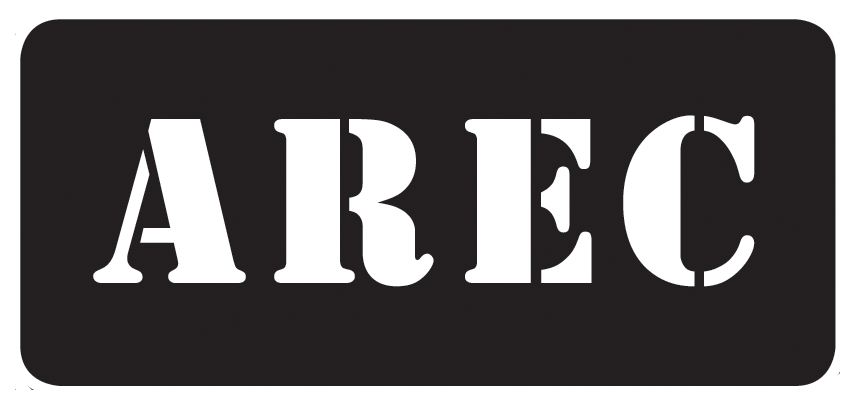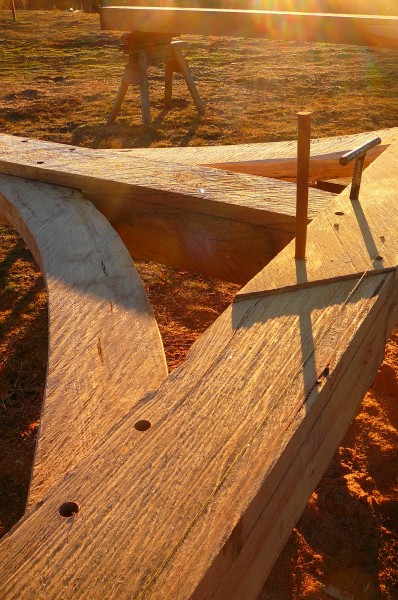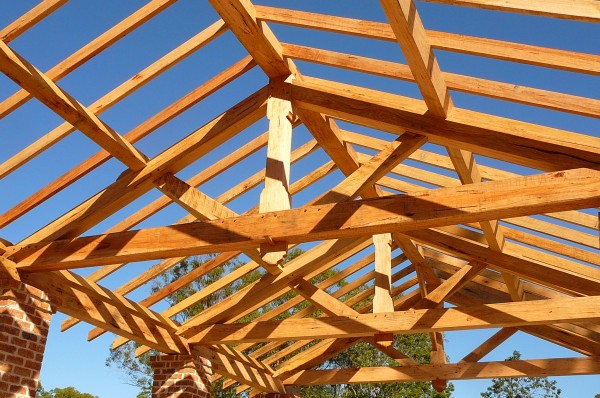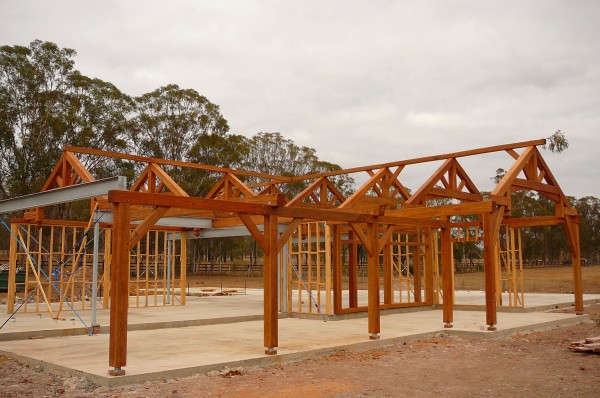Traditional Timber Framing Course
Unfortunately, Chris Nance is unable to commit to any Traditional Timber Framing courses in 2021 due to other commitments. We’re hoping he will be available again in the future, so keep an eye on this page for any updates!
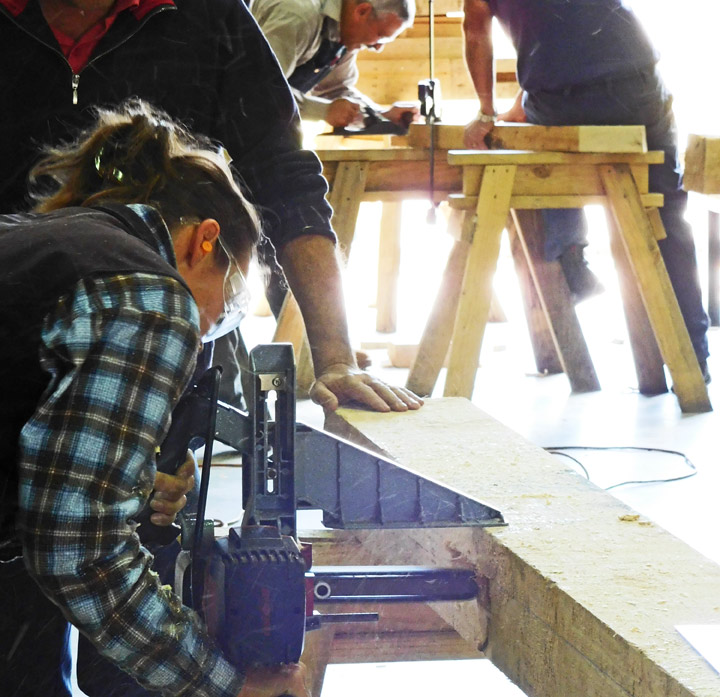

How to book
The number of participants are limited in each course. Your booking is only confirmed when full payment is made. Course participants are welcome to camp on site at no charge during the course. Course fees are $695.00 per participant.
Unfortunately, Chris Nance is unable to commit to any Traditional Timber Framing courses in 2021 due to other commitments. We’re hoping he will be available again in the future, so keep an eye on this page for any updates!
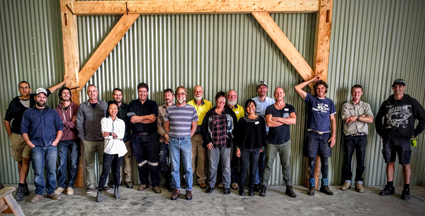
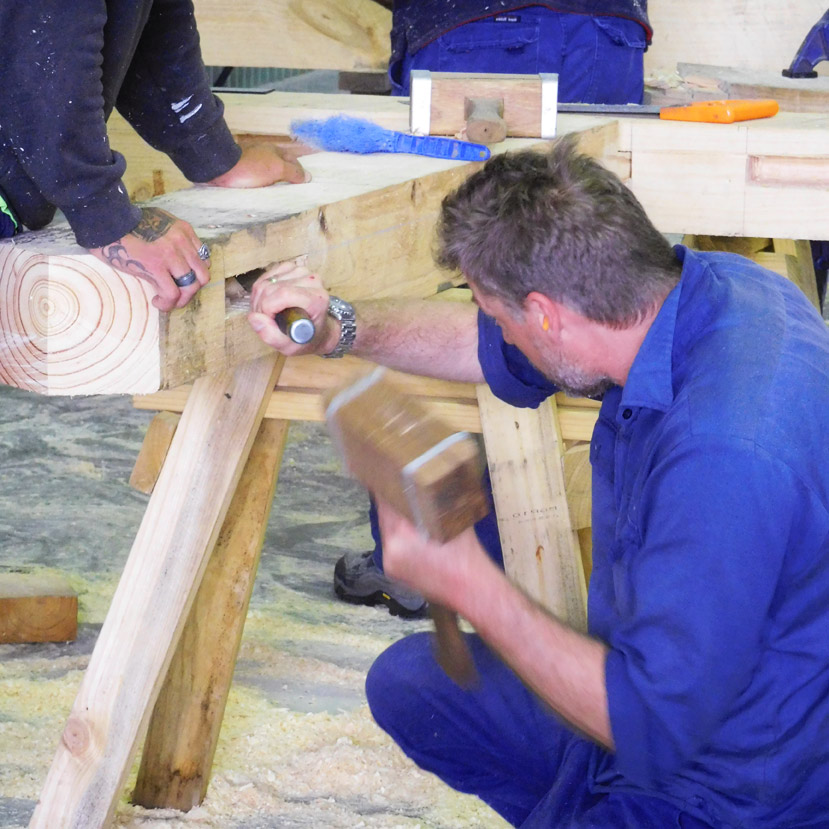

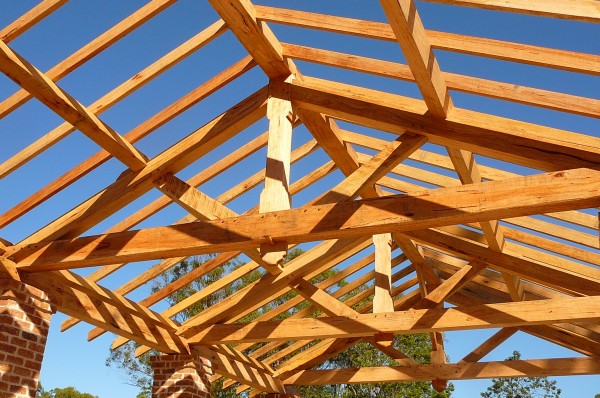
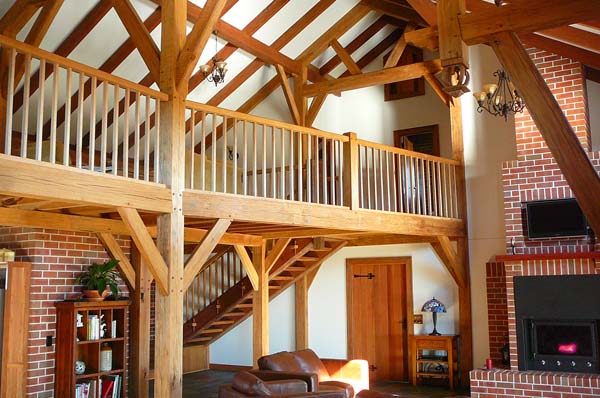
3 Day Traditional Timber Framing Course with Chris Nance.
Over the action packed 3 days of the course we will touch on all aspects involved in the design and construction of a traditional timber frame and how to incorporate it into a number of different building systems and housing types. This will be a largely practical course based around the construction of an outdoor timber framed structure and will conclude with the assembly of the timber frame on site.
- Timber frame design theory and structural considerations
- The different timber options available, timber sourcing and milling
- Joinery design and marking out systems
- Truss and roofing geometry and calculations
- Different tool and equipment requirements
- Hands on work marking and cutting joints and pegs
- The final assembly of a traditional timber frame and the different methods available
- Incorporating the frame into other building systems and cladding options.
Throughout the course there will be the opportunity to discuss and look into many other building and timber framing aspects as they arise and time permits.
Traditional Timber Framing
A traditional timber frame (sometimes called a post and beam frame) involves the jointing of large size timbers with mortice and tenon joinery to form houses and other structures. These frames are then left exposed internally (often externally too) within a building and are an incredibly strong, honest and beautiful form of construction. Traditional timber framing is one of the oldest forms of construction and several historic buildings still survive from the 12th century and before. In modern times, traditional timber frames are more relevant than ever and are extremely adaptable for use in modern buildings. The use of ethically sourced timber is one of the most environmentally friendly forms of construction we have available and traditional timber framing has further benefits even when compared to other forms of timber construction. These frames generally use unseasoned locally grown timber, which don’t require kiln drying, chemical treatments, international shipping or excessive machining or metal. This means the embodied energy within a traditional timber frame is minimal and carbon is locked away from the atmosphere for the life of the frame. Despite the common misconception that the large size of timbers used is excessive, when you compare the overall timber and other material requirements of a well-designed timber frame and employ it in conjunction with other environmental building systems and principles, a traditionally timber framed home is a truly sustainable, adaptable, ethical and beautiful form of construction.

Your Teacher – Chris Nance
Chris is a carpenter from the southern highlands of NSW who has experience in a range of woodwork and building areas, from furniture making through to commercial construction. Having served his carpentry and joinery apprenticeship and gained his builders licence in NSW, Chris was fortunate to get involved with Worldskills Australia where he gained a BBM Youth Support scholarship to the UK. This gave Chris the chance to learn and work in the traditional timber framing industry in the historical home of the craft and upon returning to Australia in 2009 Chris started a business specialising in this field and his business Traditional Timber Frames has since built a number of timber frames across the country.

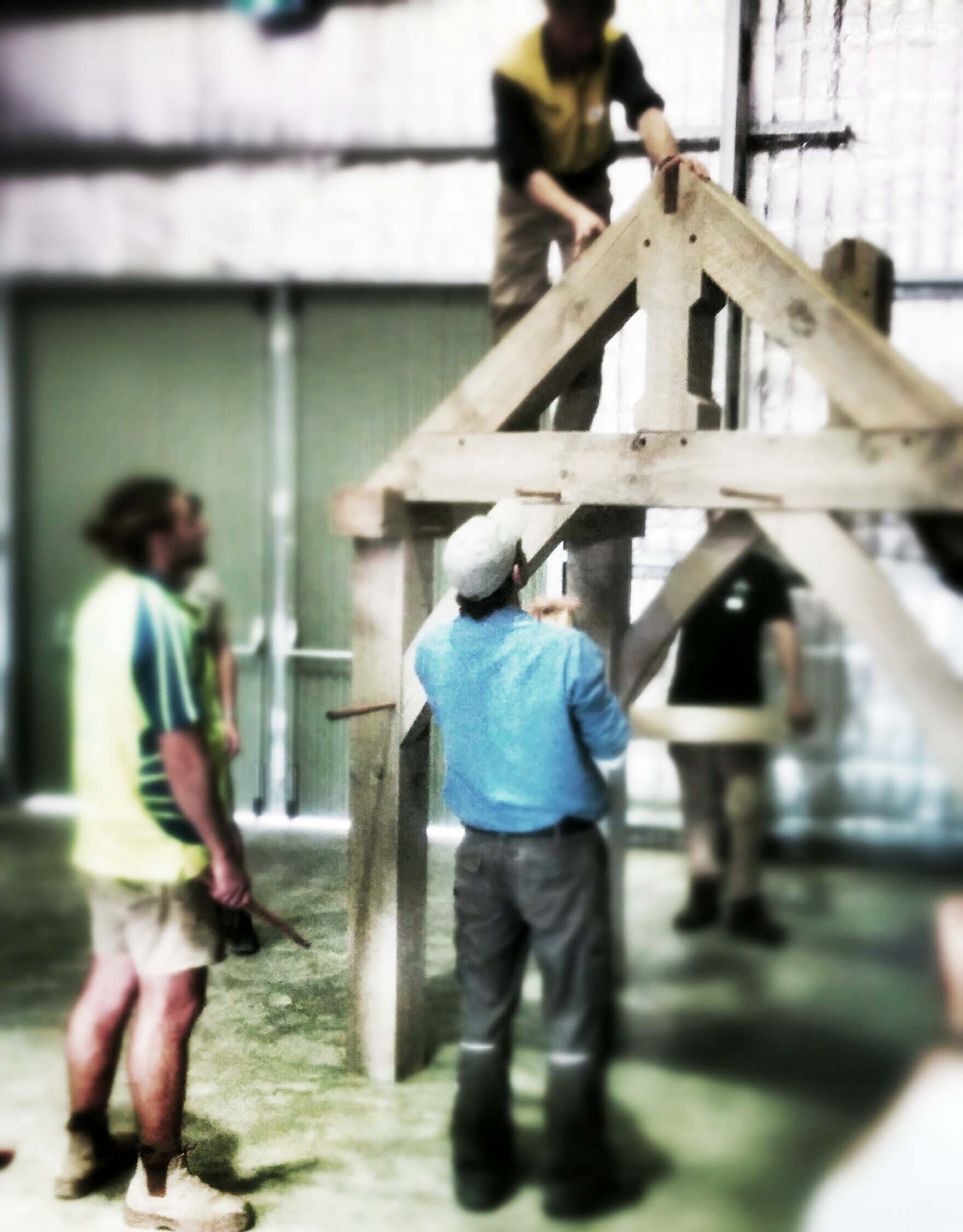
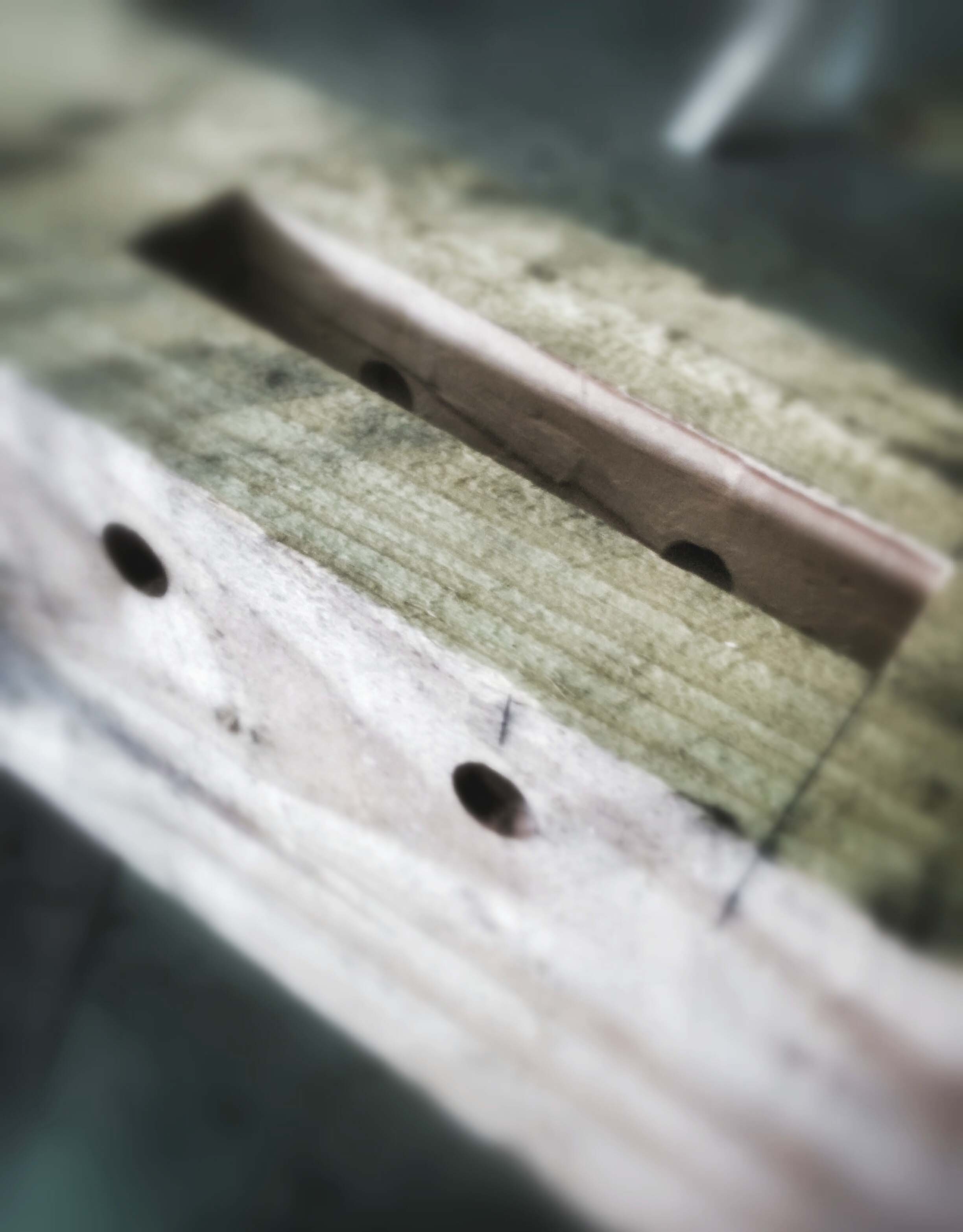
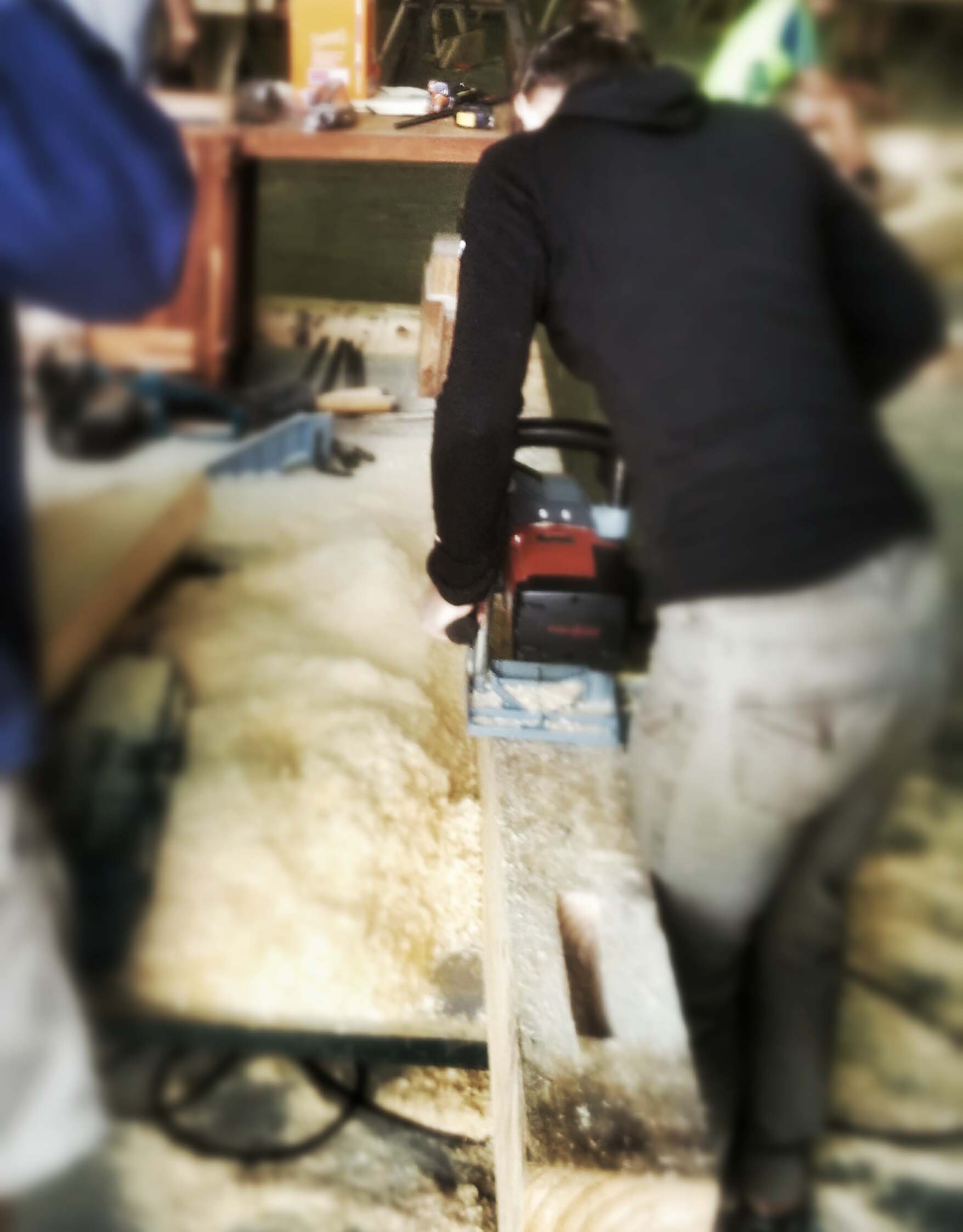
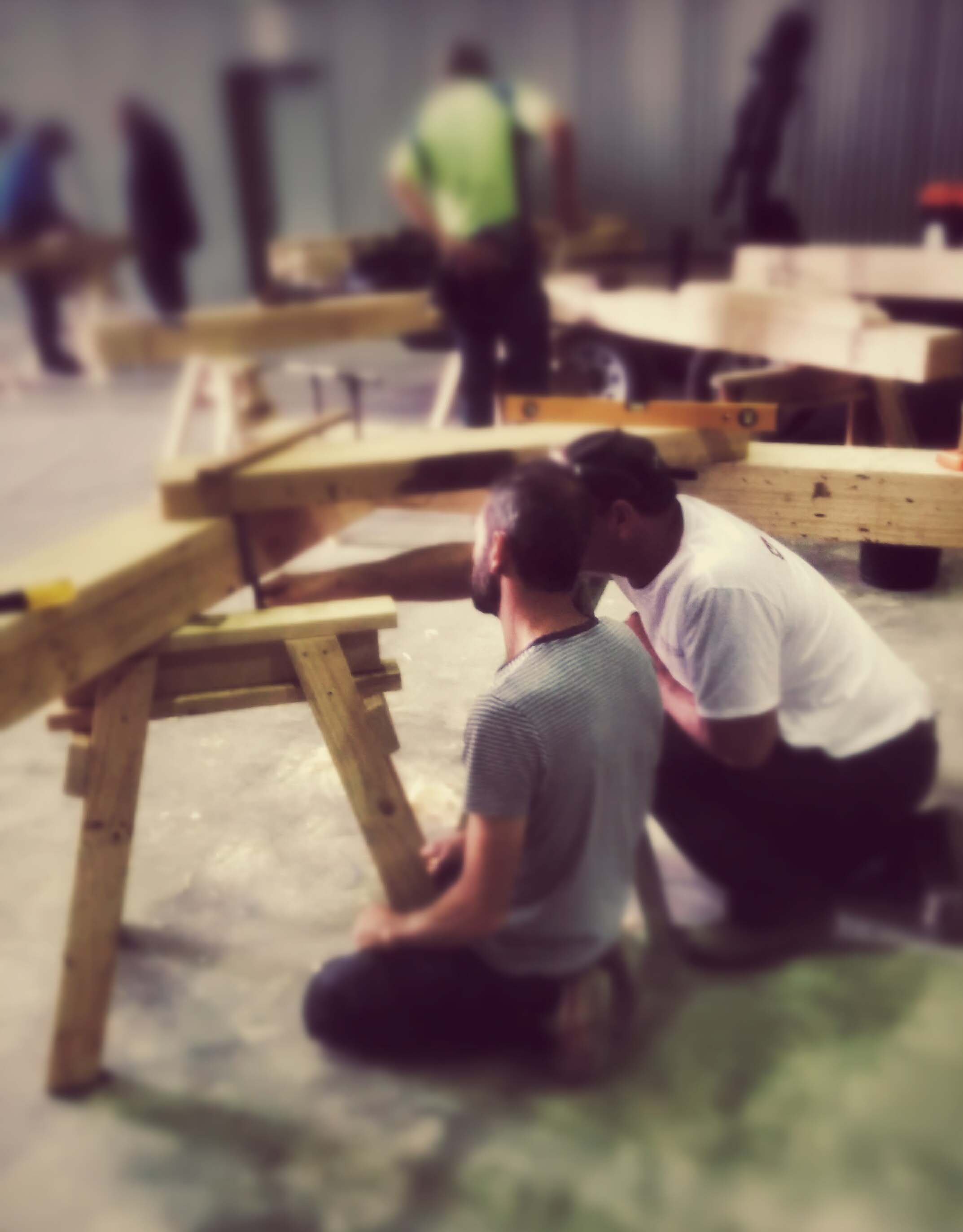
The course is held at AREC’s huge indoor classroom, guaranteeing students ideal conditions for their training, irrespective of weather conditions over the three days.

Frequently Asked Questions
What do I need to bring along to the course?
For the classroom sessions you need to bring along something to write with. A course notebook is supplied for you to fill out with notes that follows the course, however some people like taking LOTS of notes and make copious drawings. If this is you, then bring your favourite notebook. Bring a clipboard or something to lean on whilst writing. We have found the best classroom setup is without desks, so bring a clipboard, a book, a piece of ply, a piece of core flute to provide a firm surface for taking you notes. For the practical sessions you will need some personal protective equipment (PPE). You will be using mainly hand tools, and you will be handling clay, fencing wire and lime which is an alkaline material. Suggested list : – safety glasses – long sleeve shirt, long pants and enclosed shoes – hearing protection of your choice (we provide ear plugs) – gloves (sturdy washing up rubber gloves are ideal for lime rendering) – a drink bottle, if it’s hot – keep hydrated. – sun hat For those camping onsite during the course, bring a torch and you camping set up.
Can i take photos during the course?
Yes you can take still photos during the course – no problems. However – filming of the course is NOT permitted.
Can I bring my building plans or drafts?
Yes, feel free to bring along your plans or drawings. Chris is happy to discuss these with you during meal breaks.
Refunds Policy
We understand that sometimes circumstances change and you may not be able to attend a course that you have paid for. Refunds are available as long as you notify us at least 21 days prior to the commencement of the course, your options are:
1) A refund of your course fee, less an administration fee of $75,
2) A credit of the full amount towards any future course, within the next 12 months.
Refunds and credits cannot be guaranteed for cancellations less than 21 days from the event.
Are special dietary requirements catered for?
During the course we provide good quality, healthy lunches along with morning & afternoon teas. We make every endeavour to accommodate special dietary preferences, including Gluten Free or Vegetarian. Should you have a serious food allergy or more complicated dietary requirements, we would suggest you self-cater. If you plan to self-cater, please notify us as soon as you can for catering purposes.
Do you need to know more information about if the course is right for you?
If you would like to ask some questions about the course, staying on site or anything else, drop an email with the form below or call the office during business hours on (02) 6372 3899
I have some questions about the timber framing course.
The course is held at the Australian Rural Education Centre (AREC) in Mudgee NSW. AREC is a not of profit, community owned organisation.
